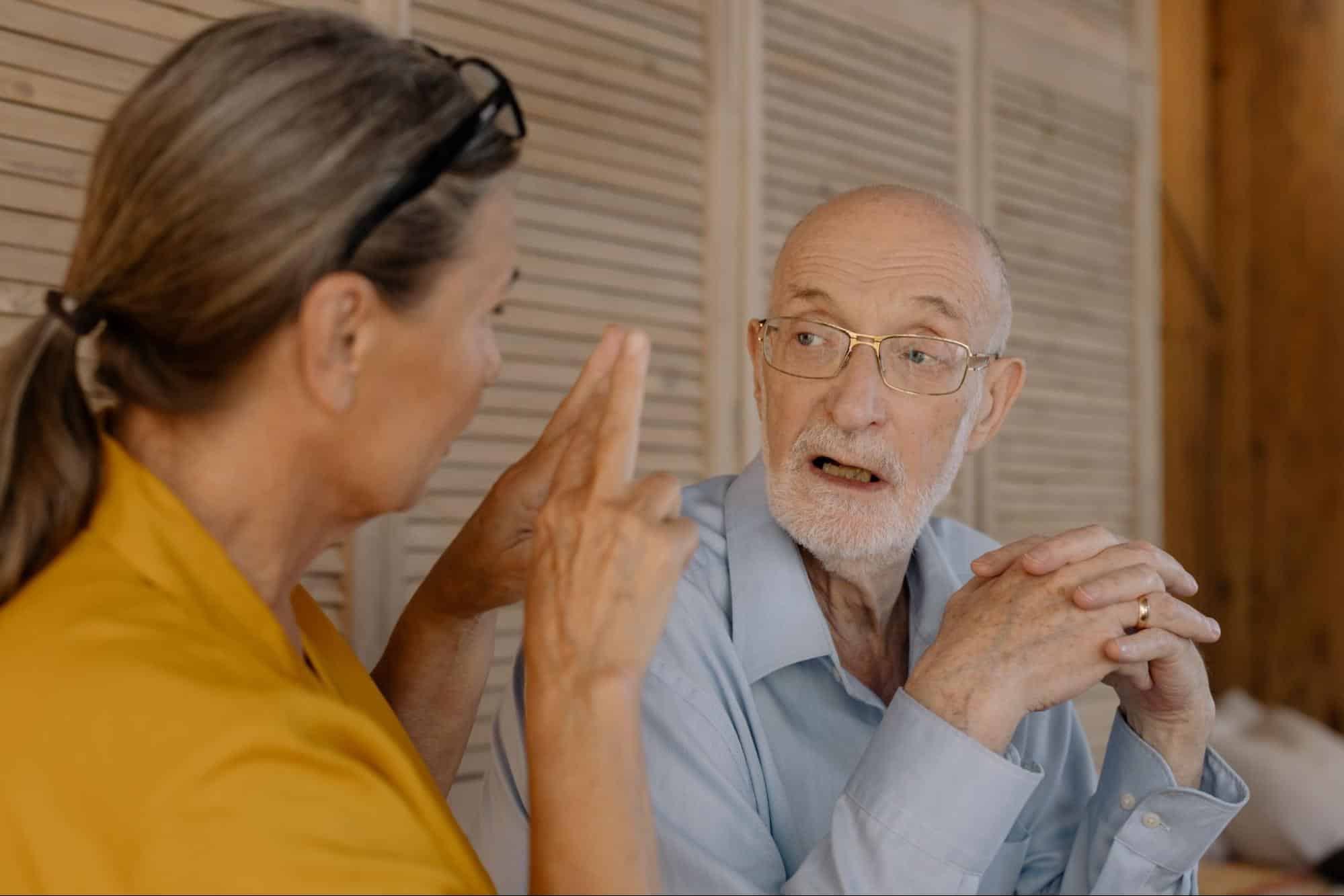
Starting a Conversation About End-of-Life Care
Talking about end-of-life care or a loved one’s life is usually the last thing one wants to discuss. But avoiding the discussion until it’s too late can be much more emotionally traumatic than having a conversation when everyone is calm, healthy, and in a good frame of mind.
According to a 2021 study published in the Journal of Psychosocial Nursing and Mental Health Services, 90% of people think it’s important to discuss end-of-life wishes. Still, only about 27% have done so. Furthermore, studies show that when people can have meaningful conversations about end-of-life care choices with their loved ones, those surviving the deceased person feel less depression and guilt.
The guide below is drawn from Your Conversation Starter Kit, a guide developed by the Conversation Project to give people the tools they need to start and continue this vital conversation.
Think About What You Want to Say
As you prepare to have the conversation, ask yourself some questions:
- What do I need to think about or do before I feel ready to have this conversation with my family?
- What particular concerns do I want to address? (Finances, provisions for children, pets, etc.)
- What matters to me at the end of life? Where do I want to be? Who do I want there with me?
- How much do I want to know about any terminal illness I have? How long do I want to continue treatment for it?
- Who will be my medical proxy if I cannot make decisions for myself?
Set the Scene
Think about whom you want to have this conversation with. Family members are probably a given, but there may be doctors, caregivers, friends, or other individuals you wish to include in the conversation.
Where would be the best time and place to have the conversation? In your home, during the holidays? In your favorite park or at your church? Before a family member moves away? Aim for whatever time and setting will encourage honest, open discussion.
Write It Down
Write down the most important things you want to say to your group. There will be more conversations, so don’t feel the need to say everything and get it all sorted in one go. It’s the beginning of many conversations.
Some things you might want to include:
- How do you want the last phase of your life to look?
- What kinds of financial decisions will have to be made?
- Whom do you want (or not want) to be involved in your end-of-life care?
- Who will you empower to make medical/financial decisions for you, if anyone?
- What essential milestones are you looking forward to?
- What medical interventions (CPR, intubation) do you want or not want?
- At what point will you want to switch over to palliative care?
Other questions will undoubtedly come up – the important thing is to be in open communication with your care team and establish that this is just to get the conversation going. Be patient with yourself and with others – it’s a complex topic. You may not agree on everything with your loved ones, and that’s okay – that’s why starting the conversation early is essential.
Debrief
After your first conversation, think about how it went, what went well, and what you’d like to change for next time. Reflect on questions like:
- How did the conversation feel? What do you want to remember?
- What do you want your loved ones to know about how it went?
- Is there anything you want to clarify?
- Is there anyone you realize should be brought into the following conversation?
- What do you want to talk about next time?
Plan for Next Time
Eventually, you will need to put your wishes and instructions into legal documents to ensure that your end-of-life care is precisely how you want it. You’ll create a power of attorney and an advance directive and fill out a good deal of paperwork. But you’ve started the conversation, and that’s quite honestly the most challenging part.
For more helpful information on discussing your healthcare management plan details, visit the Resources section of the Scripps Affiliated Medical Groups’ website. We’re here to help you live healthy, well, and happily.

Join our Senior Wellness Society for the latest news on Medicare and tips for healthy living in San Diego!
Sign up now ›Are you looking for specialized medical care in San Diego?
Our directory has more than 850 doctors in San Diego County of various specialties who are available to help you.
Find a doctor